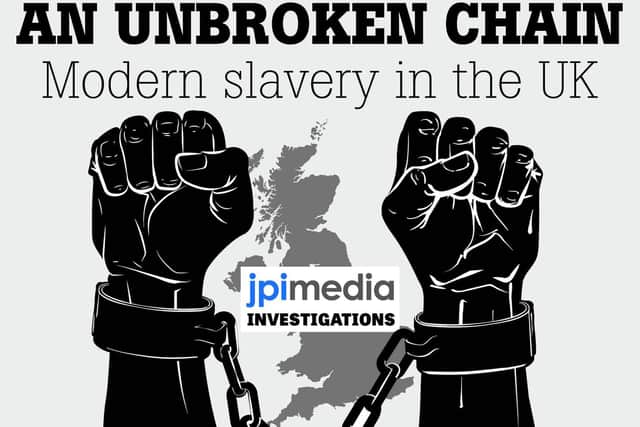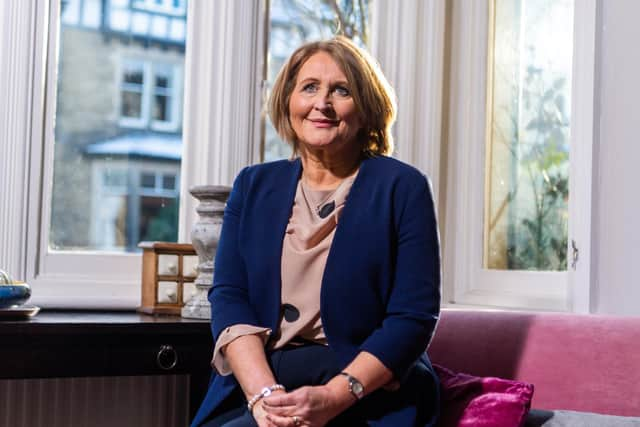Children's Commissioner Anne Longfield on why authorities 'must act earlier' to stop child exploitation
and live on Freeview channel 276
The comments from Leeds-based Anne Longfield come after analysis of Home Office figures showed more than 3,600 children were referred to the UK’s National Referral Mechanism (NRM) as potential victims of modern slavery in the first nine months of 2020.
More than half of the 2,140 referrals were for British nationals, with 1,815 of those cases involving criminal exploitation – flags experts typically associate with the use of children by county lines drug gangs.


Advertisement
Hide AdAdvertisement
Hide AdMs Longfield’s office estimated in 2019 that 34,000 children aged 10 to 17 who were victims of a violent crime in the past 12 months were either a gang member or knew a gang member.
The Commissioner undertook the research following high levels of violence involving children, to better understand how vulnerable youngsters were at risk of being recruited and criminally exploited by gangs.
But she warned that just 6,560 of these children were known to authorities – and that the remainder were slipping below the radar.
"At the moment those children don’t reach the threshold of being able to get support," Ms Longfield said.


Advertisement
Hide AdAdvertisement
Hide Ad"If they aren’t at immediate risk, the local authority may not help, the school may feel it is not their responsibility, the police will be responding to incidents when they happen, but it is that longer term protection and prevention that I want to see in place.
"I have been particularly keen to draw attention to those children who fall through the gaps at school. Those who are excluded from school either temporarily or permanently and what the impact is on their vulnerability.
"When I talk to people who are running pupil referral units or alternative provision when children have been excluded from schools they so often tell me there is a high proportion of children who are involved in gangs - very often 50 per cent.
"Where there are children who are outside that school protection, those that are seeking to target them and exploit them know where to go and that is the kind of grim reality that we have seen in recent years."
Advertisement
Hide AdAdvertisement
Hide AdSchool exclusions in 2018/19 increased to 446,000, up from 419,000 in 2017/18. An all-party parliamentary group was set up in October last year to improve outcomes for vulnerable children and reduce preventable exclusions.
For those children who have already fallen victim to criminal exploitation, there is support from organisations and charities across the UK including Barnardos.
In 2019/20, the charity helped almost 6,400 people through its child abuse and exploitation support services, including 2,900 in its child sexual exploitation services and 700 in its counter-trafficking services.
Amanda Naylor, who manages the charity’s strategy around child abuse and exploitation, thinks more collaborative working to prevent children being accessible to exploiters is needed.
Advertisement
Hide AdAdvertisement
Hide Ad"The top priority is safeguarding and sometimes that means we have to move a child quite quickly, however, moving a child from an area does not stop the exploitation of other children and the perpetrators will fill that gap," she said.
"What we need to focus on is disrupting these gangs, how do we stop them from having access to children and young people, and that is our biggest challenge in the sector because we are always helping individual children without necessarily disrupting the source.
"It does tend to require significant investment, in terms of police investigation, in order to disrupt the organised activity however that is the only way we are going to protect children."
The Modern Slavery Helpline can be called on 08000 121 700.
Support the YEP and become a subscriber today. Enjoy unlimited access to local news and the latest on Leeds United. With a digital subscription, you see fewer ads, enjoy faster load times, and get access to exclusive newsletters and content. Click here to subscribe.